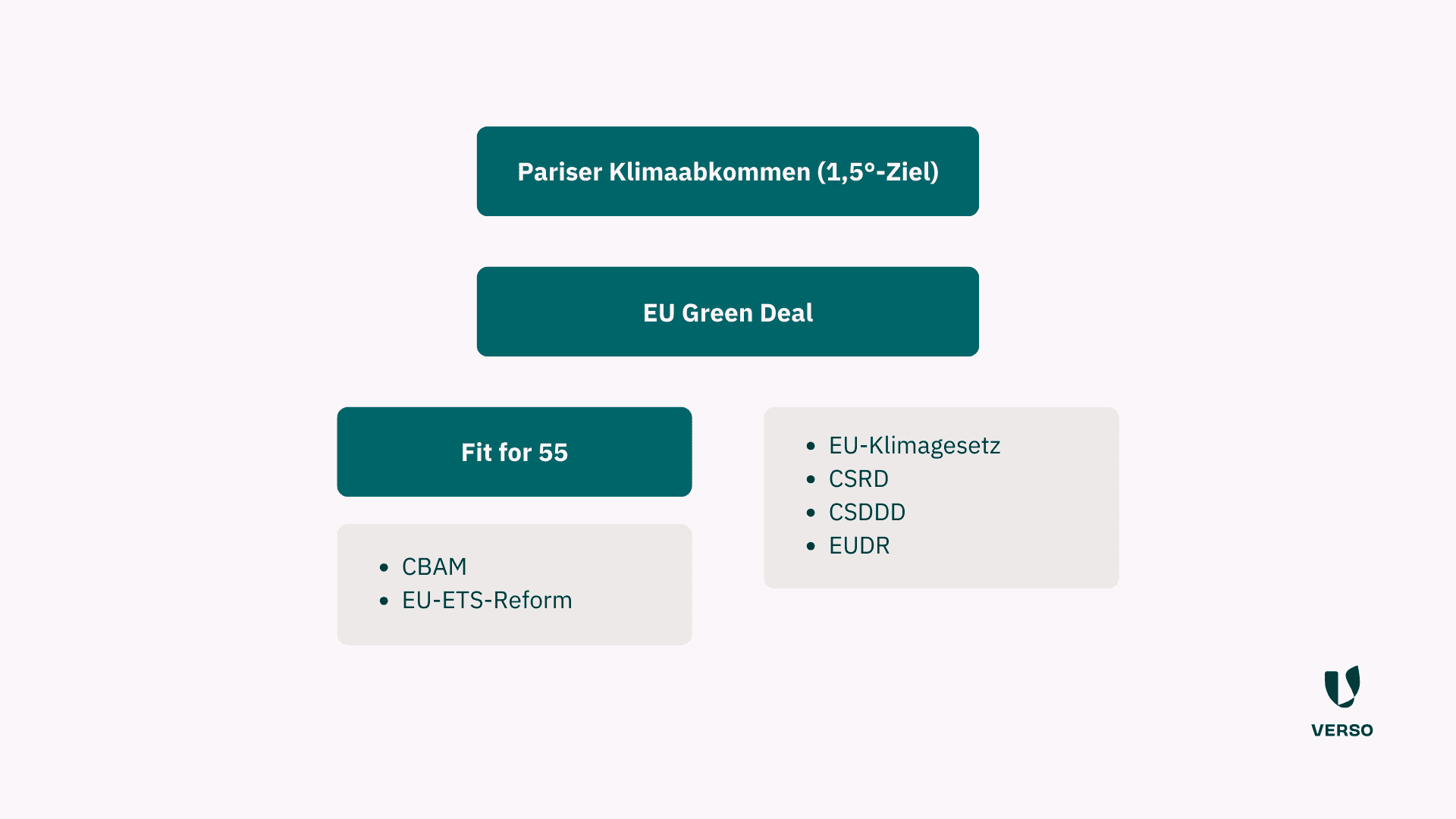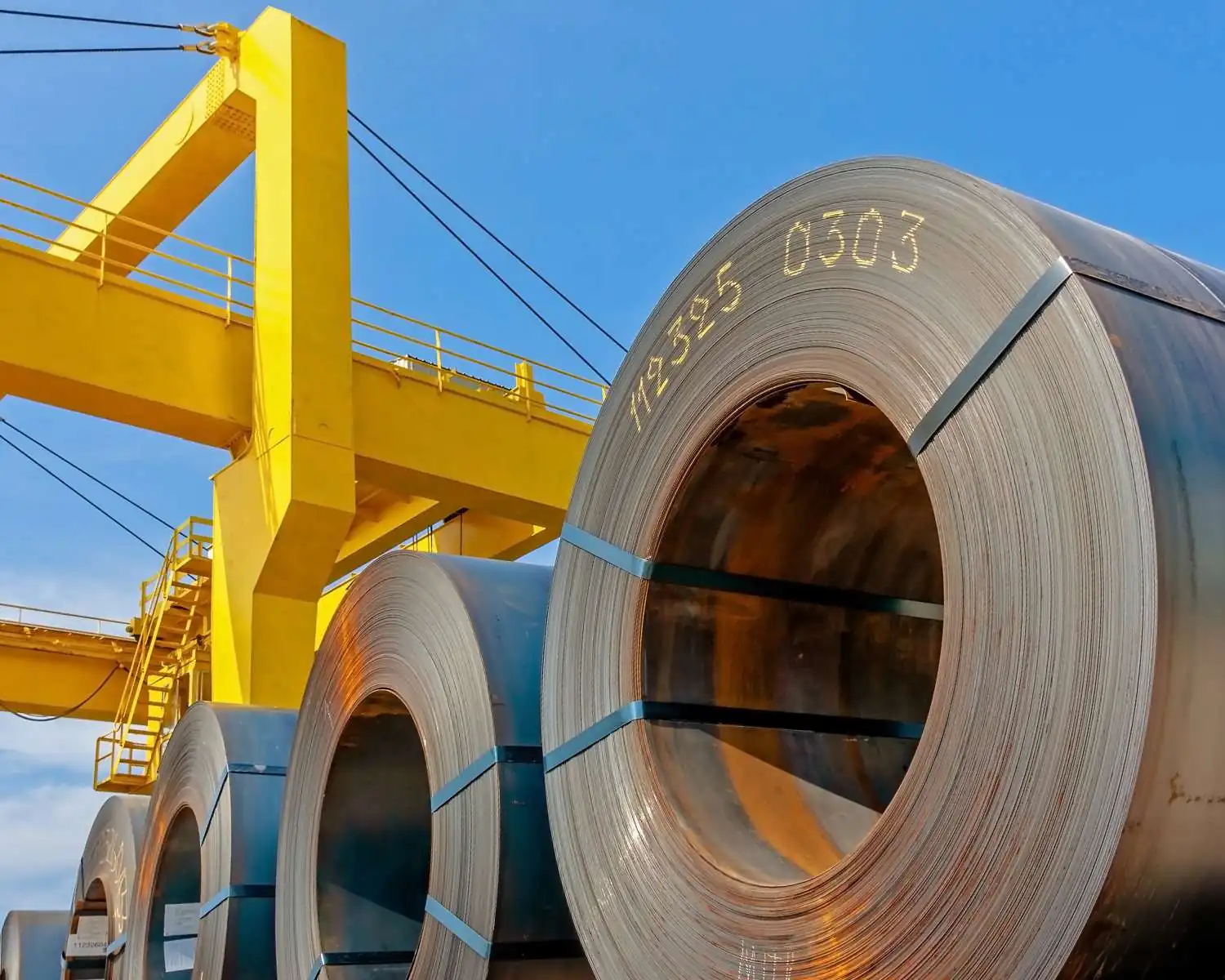
Why is climate protection relevant in the supply chain?
In this blog post, we take a look at why climate protection is also a high priority in the supply chain from two perspectives. You will also find specific tips for decarbonizing your supply chain.
LkSG and CSDDD – when you hear these terms, the first thing that comes to mind is human rights due diligence in the supply chain, such as fair working conditions and protection against slavery.
Climate protection?
Perhaps only a second thought.
However, it should definitely not be neglected in the sustainable transformation of supply chains.
After all, this is where the majority of a company’s emissions are generated.
And that has consequences.
In this blog post, we take a look at why climate protection in the supply chain is also a high priority from two perspectives.
You will also find specific tips for decarbonizing your supply chain.
Climate protection in the supply chain – because it is required by law
The first reason is quite banal: Climate protection must be taken into account because it is quite simply imposed on certain companies by law.
The basis for current sustainability legislation is the Paris Climate Agreement.
With this agreement, almost 200 countries have committed themselves to the global 1.5° target and the reduction of emissions, among other things.
The Paris Climate Agreement is the basis for the European Green Deal a strategy with which the EU aims to become climate-neutral by 2050.
A whole range of strategies have been planned for its implementation.
The most important of these for purchasing are the German Climate Protection Act (GHG neutrality by 2045), the EUDR (deforestation-free supply chains), the CSDDD (EU supply chain law) and the CSRD (sustainability reporting).
Added to this is the “Fit for 55”-package, which aims to reduce net greenhouse gas emissions in the EU by 55% by 2030. This results, among other things, in the CBAM (CO2 tax) and a reform of EU emissions trading. In addition, Germany has introduced the LkSG which was developed on the basis of the National Action Plan for Business and Human Rights.
All of these guidelines directly and indirectly oblige companies to prioritize climate protection in their supply chains.
For example, the CSDDD draft paper – in relation to the CSRD climate obligations – explicitly requires “that the company’s business model and strategy are compatible with the transition to a sustainable economy and with limiting global warming to 1.5 °C in accordance with the Paris Agreement and the goal of climate neutrality in accordance with [dem EU-Klimagesetz], including [der Ziele] for climate neutrality […].”(CSDDD draft of 15.3.2024 , Art. 15) So much for the dry legal perspective.
However, as we already wrote in the ESG Briefing, we at VERSO are convinced that anyone who does not take a holistic approach to the topic of sustainability strategy will only end up with bureaucratic red tape without any added value as a result of the requirements. So let’s take a look at why climate protection in the supply chain is incredibly important, even beyond legal obligations!
Climate protection in the supply chain – because it makes companies future-proof
Climate change poses risks for supply chains
The supply chain is the backbone of every company.
But it is also one of the biggest sources of greenhouse gas emissions.
Depending on the industry, up to 80% of a company’s total emissions are generated here alone.
By now, everyone should be aware that greenhouse gas emissions – especially CO2 – fuel climate change.
And this has consequences for the supply chain.
Because with global warming, storms, heavy rain, floods, but also heatwaves with droughts and fires are becoming more frequent worldwide.
These extreme weather events can damage, block or completely destroy production facilities and transport routes.
This results in delivery delays and production and harvest failures with considerable financial losses and frustration among customers.
On the other hand, there is the growing global demand for raw materials of all kinds. This is not just about rare earths or important metals, but also about very basic things such as drinking water and food.
And where resources become scarce, conflicts, tensions or even wars are not long in coming.
It is clear as daylight that this is a real problem for the local people on the one hand, but also for your supply chain on the other.
It is therefore in the interests of procurement to help curb climate change with climate protection measures along the supply chain.
Customers and consumers demand sustainability
Sustainability – and therefore also climate protection – is becoming increasingly important for investors, customers and consumers when making purchasing decisions: 79% of consumers surveyed in a Capgemini study stated that they are changing their purchasing behavior in the interests of sustainability.
66% even responded that they specifically look for environmental friendliness when selecting products and services.
Sustainable, climate-friendly products are therefore a) becoming a competitive advantage.
But be careful: If it says climate protection on the label, it must really contain climate protection!
With the Green Claims Directive, false or vague environmental claims (greenwashing) lead to expensive fines.
Not to mention the loss of reputation for your company.
And even if the CSDDD no longer directly affects SMEs and companies can no longer simply pass on their due diligence obligations to their suppliers: The Business Development Bank of Canada found that 92% of large companies will demand clear ESG information from their suppliers.
ESG commitment is therefore also b) becoming a decision criterion when awarding contracts.
Measures for climate protection in the supply chain
In summary, we can therefore state the following: On the one hand, climate protection in the supply chain is a must because it is simply required by law in various forms.
At the same time, however, it also presents opportunities!
If you start decarbonizing your supply chain now, you will make it more resilient to climate change risks and their effects.
At the same time, you will meet the growing sustainability demands of customers and consumers.
And you protect yourself against rising costs, such as those associated with the carbon pricing that the CBAM places on imports.
The challenges associated with the sustainable transformation of the supply chain are therefore more than worth it.
Don’t you agree?
Last but not least, only one question remains: What does climate protection in the supply chain mean in practice?
You can find specific tips on reducing emissions in the supply chain in our article “Decarbonizing the supply chain: How companies can achieve their climate targets along the supply chain”.
Read on now!
* This information is summarized editorial content and should not be construed as legal advice. VERSO accepts no liability.
This might also interest you:
Subscribe to our newsletter!
Sign up and receive regular news about:
- Pragmatic all-in-one solution for ESG reporting, climate and supply chain management
- Individual advice from the VERSO experts
- Developed with expertise from 12+ years of sustainability management
- Trusted by 250+ customers


